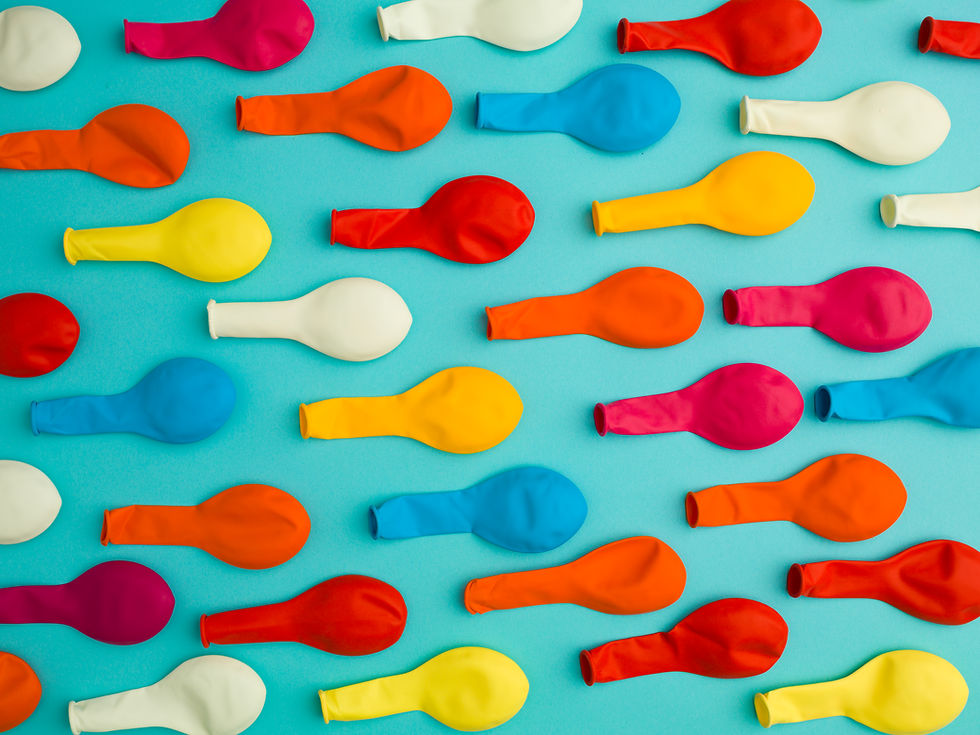The age-old question, "Can I get pregnant when I'm on my period?"
- Gulf Coast Acupuncture and Fertility

- Aug 4, 2021
- 4 min read

The short answer is it's unlikely, but not impossible. You're fertile on the days leading up to and around the time of ovulation, so it's essential to consider the length of your cycle. If you have a short cycle, you could be ovulating just after your period.
It's usually assumed that the average menstrual cycle is 28 days long, but every woman is unique, and nearly 50% of women's cycles vary in length by seven days or more. In a recent study of over 800 women, only 14% of women with a 28-day cycle ovulated on day 14. The day of ovulation ranged from Day 11 to Day 20.
Since menstrual cycles can vary in length, the timing of ovulation will also be different, so it can be challenging to know when you are fertile. If your cycle is short, your ovulation period would be very close to your period, increasing the chance of pregnancy when having unprotected sex during your period.
How does this happen? If you happen to have a short cycle (21 to 24 days), you will likely ovulate close to your period. Sperm can live 2-5 days if you have unprotected sex and are not taking any form of contraception; you could have sex towards the end of your period and then actually conceive 4 or 5 days later with your early ovulation.
The probability of getting pregnant while on your period is low, but depending on your cycle is possible. There is also the possibility of getting pregnant right after your period. Every day after your period, you are starting to move towards your fertile window.
If your period lasts for 5 to 7 days, and you have sex right after that, you are approaching your fertility window. If your period stops on Day 6 and you have sex on Day 7 and ovulate on Day 11. The sperm from Day 6 may still be active. Of course, your chances of conceiving right after your period increase with each day after it has stopped.
What about getting pregnant Right Before Your Period?
The egg is only available for 12 to 24 hours for conception. So it's even less likely you will get pregnant before your period than it is during. If you have regular cycles, then it's doubtful you can get pregnant two days before your period. After ovulation, the egg is only around for 12-24 hours, and ovulation in a regular cycle will have occurred two weeks before your period.
It is still very unlikely for this to happen even with irregular cycles, but it is crucial to understand the fertility cycles to look out for your fertile time. If you know when ovulation occurred and you wait for 36 to 48 hours later, then you should be beyond the possibilities of conception. The further you move away from ovulation, the less likely your chance will be for conceiving.
Getting pregnant on the first day of your period is possible, although it is unlikely if you have a 28-day regular cycle. If you have a short or irregular cycle, ovulation might start from the first day of your period and increase your pregnancy chance.
Sounds confusing! So when Is YOUR FERTILE WINDOW, and what days can you GET PREGNANT?
The truth is, your fertile window each month is pretty small—about five to seven days total. A man's sperm must fertilize a woman's egg within 48 hours of ovulation.
Your cycle can be broken into two primary phases: the follicular phase and the luteal phase.
The follicular phase is the first phase of the cycle. It lasts about 10 to 14 days. The uterus lining rebuilds in preparation for ovulation, and your hormones stimulate follicle development during this phase.
Estrogen levels decrease, which triggers an increase of follicle-stimulating hormone (FSH) that promotes the growth of a group of follicles within the ovaries. One follicle will continue to develop into a mature egg. Hormones cause the mature follicle to burst and release the egg into the fallopian tube. This signals the beginning of ovulation, which marks the end of the follicular phase.
The menstrual cycle enters the luteal phase with the ovulation of an egg from one of the ovaries. A surge of luteinizing hormone initiates ovulation. Estrogen and progesterone levels also rise during the luteal phase causing the endometrium (the lining of the uterus) to thicken in preparation for an embryo
If a woman becomes pregnant, the embryo enters the uterus and implants itself in the endometrium within the first few days after ovulation. Human chorionic gonadotropin (HCG), produced by the placenta, interrupts the menstrual cycle by constantly stimulating the burst follicle to produce estrogen and progesterone. The high levels of estrogen and progesterone prevent the endometrium from shedding. If conception does not occur, estrogen and progesterone levels decrease, signaling the uterus to shed the endometrium. The luteal phase lasts until the beginning of the next period.
Although the chances are less, you could get pregnant during your period, before your period, one day after your period, or even when you are using birth control. Understanding your cycle is vital.
We are now accepting new patients. At Gulf Coast Acupuncture and Fertility, you are more than just a number.
(850)331-9991






Comments